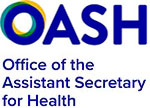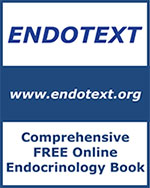Diabetes Standards of Care and Resources for Clinicians and Educators
Nutrition
Maintaining blood sugar control is essential to managing diabetes. Eating nutritious foods with appropriate portion sizes helps keep blood sugar levels in the target range. When promoting good nutrition for American Indian and Alaska Native (AI/AN) people with diabetes, it is important to gain understanding and respect diverse personal and cultural preferences. It is also essential to screen people for food insecurity and if needed provide them with resources to get sufficient healthy food.
Nutrition education should be provided at the time of diagnosis, annually, and as needed for ongoing diabetes care. Personalized medical nutrition therapy (MNT) from a Registered Dietitian (RD) is linked to reductions in A1C levels and is recommended. Healthcare team members should offer basic nutrition education if MNT is unavailable.
Resource Links
for All Topics
» Online version
» Print version [PDF – 269 KB]
Clinical Practice Recommendations
Recommendations for Nutrition
- Provide Medical Nutrition Therapy (MNT) and nutrition education at diagnosis, annually, and more often, as needed.
- Offer basic nutrition education that supports healthy eating patterns, focusing on a variety of foods in appropriate amounts. Education approaches for prediabetes or diabetes include:
- using an individualized approach to establish weight, blood sugar, and other health goals;
- encouraging nutrient-dense foods, sugar-free beverage choices, proper portion sizes, and balanced eating patterns to help achieve optimal health;
- considering cultural food preferences, health literacy and numeracy, and willingness and ability to make behavioral changes. Be mindful of potential competing responsibilities and stressors which may make it challenging for people to prioritize diabetes self-care;
- considering using a diabetes plate method to balance the amounts of vegetables, protein, and carbohydrate foods in a meal. Use My Native Plate to guide conversations about eating practices, traditional foods, meal preparation, eating schedules, and portions; and Diabetes Plate. Exit Disclaimer: You Are Leaving www.ihs.gov
- providing education to people about foods containing carbohydrates (carbs), including the types and amounts that are best for managing blood glucose levels. Carbs from sugars and starches can raise blood glucose more quickly and to higher levels than fats and protein do. Start the conversation about carbs using education resources, such as Carbohydrates by Color and Find the Carbohydrates on My Native Plate.
- Encourage people to monitor carb intake to help reach and maintain blood glucose goals. Provide education regarding:
- limiting intake of refined carbs and sugar-sweetened beverages;
- benefits of consuming a moderate and consistent intake of carbs from vegetables, legumes, fruits, dairy, and whole grains throughout the day; and
- eating 2-4 carb servings at each meal to provide consistency and moderation.
For more on the amount of carbs and serving sizes in common foods, see Carb Choices | Diabetes | CDC. Exit Disclaimer: You Are Leaving www.ihs.gov
Food insecurity may be transient or long-term. Many factors impact food security, such as financial instability, transportation issues, problems with utilities, job loss, drug and alcohol dependency, and end-of-month food or income shortages.
- Screen for food insecurity annually and more frequently, as needed. Assess a person’s access to sufficient, affordable, and culturally appropriate foods. See Food Insecurity Assessment Tool and Resource List [PDF – 534 KB] for guidance.
- Connect people with food and nutrition resources in their communities.
- Create and maintain a list of local food resources to share with people. The "Where to Get Food Assistance in This Community" template is available as a part of the food insecurity tool listed above.
- Traditional Indigenous food resources may be available in AI/AN communities. In general, these are nutrient dense foods and support cultural identity.
Clinician and Educator Resources
Featured Nutrition Resources
Patient Education Resources
Nutrition Patient Education Resources
| Organization | Resource |
|---|---|
|
Education Materials and ResourcesCarbohydrate Basics Food and Nutrition Topics |
|
Healthy Eating Exit Disclaimer: You Are Leaving www.ihs.gov Recipes for People with Diabetes Booklet Exit Disclaimer: You Are Leaving www.ihs.gov [PDF] |
|
Dietary Approach to Stop Hypertension – DASH Eating Plan Exit Disclaimer: You Are Leaving www.ihs.gov Healthy Living with Diabetes Exit Disclaimer: You Are Leaving www.ihs.gov |
CME Training
| Session Title | Session Material | CME/CE Information |
|---|---|---|
New Perspectives from Nutrition Educators on What Can I Eat? Healthy Choices for American Indians Exit Disclaimer: You Are Leaving www.ihs.gov
Sarah Stotz PhD, MS, RDN, CDCES
Colorado State University Kelli Begay MS, MBA, RDN Indian Health Service-DDTP Teresa Hicks RDN, CDCES Alaska Native Tribal Health Consortium Nick Begick RDN, CDCES Oklahoma City Indian Clinic Jessica LaFromboise MS, RDN Wewoka Indian Health Center Veronica Leahy DCES Tulalip Health System (Originally presented on 03/26/2025) |
Take Quiz |
|
New The Relationship Between Food and Nutrition Insecurity and Diabetes Exit Disclaimer: You Are Leaving www.ihs.gov
Wendy Castle MPH, RD, LD, CDCES
Division of Diabetes Treatment and Prevention Kelli Begay MS, MBA, RDN Indian Health Service-DDTP Stacy Hammer MPH, RDN, LD Indian Health Service-DDTP (Originally presented on 03/19/2025) |
Take Quiz |
|
New Strengthening the Hemish Food System: Promoting Food Sovereignty Through Culturally Relevant System Changes, Education, and Equitable Access Exit Disclaimer: You Are Leaving www.ihs.gov
Jillian Cambridge MPH, MA, PhD (c)
SDPI Principle Investigator (Originally presented on 12/11/2024) |
Take Quiz |
|
New Balancing Tradition and Health: Diabetes Management with Southwest Tribal Foods Exit Disclaimer: You Are Leaving www.ihs.gov
Denee Bex MPH, RD, CDCES
Tumbleweed Nutrition LLC (Originally presented on 10/23/2024) |
Take Quiz |
|
New Nurturing Health: The Link Between Breastfeeding and Type 2 Diabetes Prevention Exit Disclaimer: You Are Leaving www.ihs.gov
Nicole Santonastaso O'Neill RDN, LD, IBCLC, CDCES
Norton Sound Health Corporation (Originally presented on 08/07/2024) |
Take Quiz |
|
New Our Prayer: Healthy Future Generations as a Result of the Healthy Diné Nation Act of 2014 Exit Disclaimer: You Are Leaving www.ihs.gov
Denisa Livingston
Diné Community Advocacy Alliance (Originally presented on 07/24/2024) |
Take Quiz |
|
|
Gary L. Ferguson ND
Institute for Research and Education to Advance Community Health (IREACH) (Originally presented on 06/05/2024) |
Take Quiz |
|
New Applying the ADCES 7-Self Care Behaviors in Navajo Communities Exit Disclaimer: You Are Leaving www.ihs.gov
Denee Bex MPH, RD, CDCES
Tumbleweed Nutrition LLC (Originally presented on 04/03/2024) |
Take Quiz |
|
New Better Understanding Diet, Physical Activity, & Cardio-metabolic Health in American Indians Exit Disclaimer: You Are Leaving www.ihs.gov
Mandy Fretts PhD MPH
Department of Epidemiology University of Washington School of Public Health (Originally presented on 01/24/2024) |
Take Quiz |
|
New Health Coaching: Practitioner Perspectives in Improving Health Outcomes Exit Disclaimer: You Are Leaving www.ihs.gov
Jill Breyen MS, RDN, CDCES
Red Lake Comprehensive Health Services Red Lake Indian Hospital (Originally presented on 09/06/2023) |
Take Quiz |
|
|
Michelle Archuleta MA, MS
HQs Indian Health Service Alyssa Fine RN, MSN, CDCES, CNL Cowlitz Indian Tribe Health Clinic LCDR, US Public Health Service (Originally presented on 05/24/2023) |
Take Quiz |
|
New Utilizing Plant-Based Diets to Improve Diabetes Outcomes Exit Disclaimer: You Are Leaving www.ihs.gov
Amy Richards PhD, RDN, LN
University of Tennessee at Martin (Originally presented on 03/22/2023) |
Take Quiz |
|
New Simple to Advanced Approaches to Carbohydrate Counting Exit Disclaimer: You Are Leaving www.ihs.gov
Kibbe Brown MS, RD
Division of Diabetes Treatment and Prevention Wendy Castle MPH, RD, LD, CDCES Division of Diabetes Treatment and Prevention (Originally presented on 03/08/2023) |
Take Quiz |
|
New Understanding Food Security in Indian Country: Results from the Survey of Native Communities' Food Access During Covid-19 Exit Disclaimer: You Are Leaving www.ihs.gov
Whitney Sawney
Native American Agriculture Fund Katie Jacobs MPH, RDN Early Childhood Programs and Food Systems Food Research & Action Center (Originally presented on 03/01/2023) |
Take Quiz |
|
New The Impact of Social Determinants of Health on Type 2 Diabetes in Indigenous Communities Exit Disclaimer: You Are Leaving www.ihs.gov
Dr. Melissa Walls
Sid Kellar (Originally presented on 12/21/2022) |
Take Quiz |
|
|
Hilary Seligman MD MAS
University of California San Francisco (Originally presented on 12/14/2022) |
Take Quiz |
|
New An All-of-Government Approach to Diabetes Prevention and Control: Report from the 2022 Federal Diabetes Commission Exit Disclaimer: You Are Leaving www.ihs.gov
Dean Schillinger MD
Division of General Internal Medicine (Originally presented on 11/09/2022) |
Take Quiz |
|
New Case Management: Practicing Population Health to Engage Patients as Partners in Care Exit Disclaimer: You Are Leaving www.ihs.gov
Krista Haven RN, MSN, CDE
(Originally presented on 11/02/2022) |
Take Quiz |
|
New Using the Nutrition Facts Label to Achieve the Healthy People 2030 Goals Exit Disclaimer: You Are Leaving www.ihs.gov
Mark A. Kantor Ph.D.
(Originally presented on 10/19/2022) |
Take Quiz |
|
















